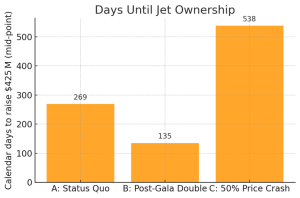
Tether, leader in the digital assets and crypto sector, has announced a strategic investment of 3 million dollars in the Kem app, aimed at facilitating money transfers and improving access to financial services in the Middle East.
Crypto news: the Kem app introduces Tether to facilitate money transfers in the region
As anticipated, Tether Operations Limited, the leading company in the field of digital assets, has recently revealed a strategic investment of 3 million dollars in the Kem application.
That is, a platform dedicated to money transfers and financial management.
This investment represents an important step in Tether’s mission to improve financial inclusion globally, with a particular focus on the Middle East region.
The Middle East and North Africa (MENA) represent one of the most significant crypto economies in the world.
In particular, with an estimated on-chain value of nearly 390 billion dollars received between July 2022 and June 2023, which constitutes 7.2% of global transactions.
This region, which includes countries like Dubai and Abu Dhabi, has shown a growing interest in cryptocurrencies, making it a fertile ground for the adoption of new financial technologies.
The introduction of USDT, the stablecoin of Tether, on the Kem platform aims to improve the economic conditions in various Gulf countries, including Kuwait, Bahrain, Saudi Arabia, Qatar, and Iraq.
With millions of expatriates living and working in these nations, access to USDT could offer an effective solution against hyperinflation and economic instability that afflict various economies in the region.
A strategic investment for economic growth
The investment of Tether in Kem is seen as a strategic move to expand its presence in the Middle Eastern market.
Thanks to this collaboration, residents of the Gulf Cooperation Council (GCC) will have more convenient access to USDT, facilitating cross-border transactions and providing greater economic security.
The Kem platform, already known for its ability to enable seamless money transfers, will integrate USDT into its services, paving the way for greater adoption of criptovalute in the region.
This will not only strengthen financial inclusion, but it will also help stabilize local economies. Thus offering advanced financial tools to millions of users who, until now, have had limited access to such resources.
Paolo Ardoino, CEO of Tether, emphasized the importance of this investment, stating the following:
“Our commitment is aimed at promoting financial stability and inclusion. We firmly believe that everyone should have the opportunity to protect their economic future and that of their families. Our investment in Kem App is a concrete step towards realizing this vision.”
Continuous innovation for a decentralized financial future
Tether is not limited to the investment in Kem. The company is indeed working on a series of innovative projects aimed at building a decentralized financial ecosystem.
Among these, Pear Credit stands out, a transparent accounting system that leverages peer-to-peer technology to ensure scalability and resilience, and HolePunch, a platform for peer-to-peer applications.
These initiatives, together with the recent investment in cloud platforms of intelligenza artificiale generative, demonstrate Tether’s willingness to continue pushing the boundaries of technological innovation.
The objective is to create a more inclusive, accessible, and resilient financial system that can meet the needs of an increasing number of users worldwide.
In summary, the collaboration between Tether and Kem represents a significant breakthrough for the future of financial inclusion in the Middle East.
Incorporating cryptocurrencies into its platform, Kem aims to replicate the success of other global financial platforms, promoting a more inclusive and sustainable banking landscape.
This investment could also serve as a catalyst for further innovations in the financial sector of the region, stimulating economic growth and offering new opportunities to local entrepreneurs.
With Tether leading the way, the future of cryptocurrencies in the Middle East looks promising, marking another step towards global financial inclusion.





















